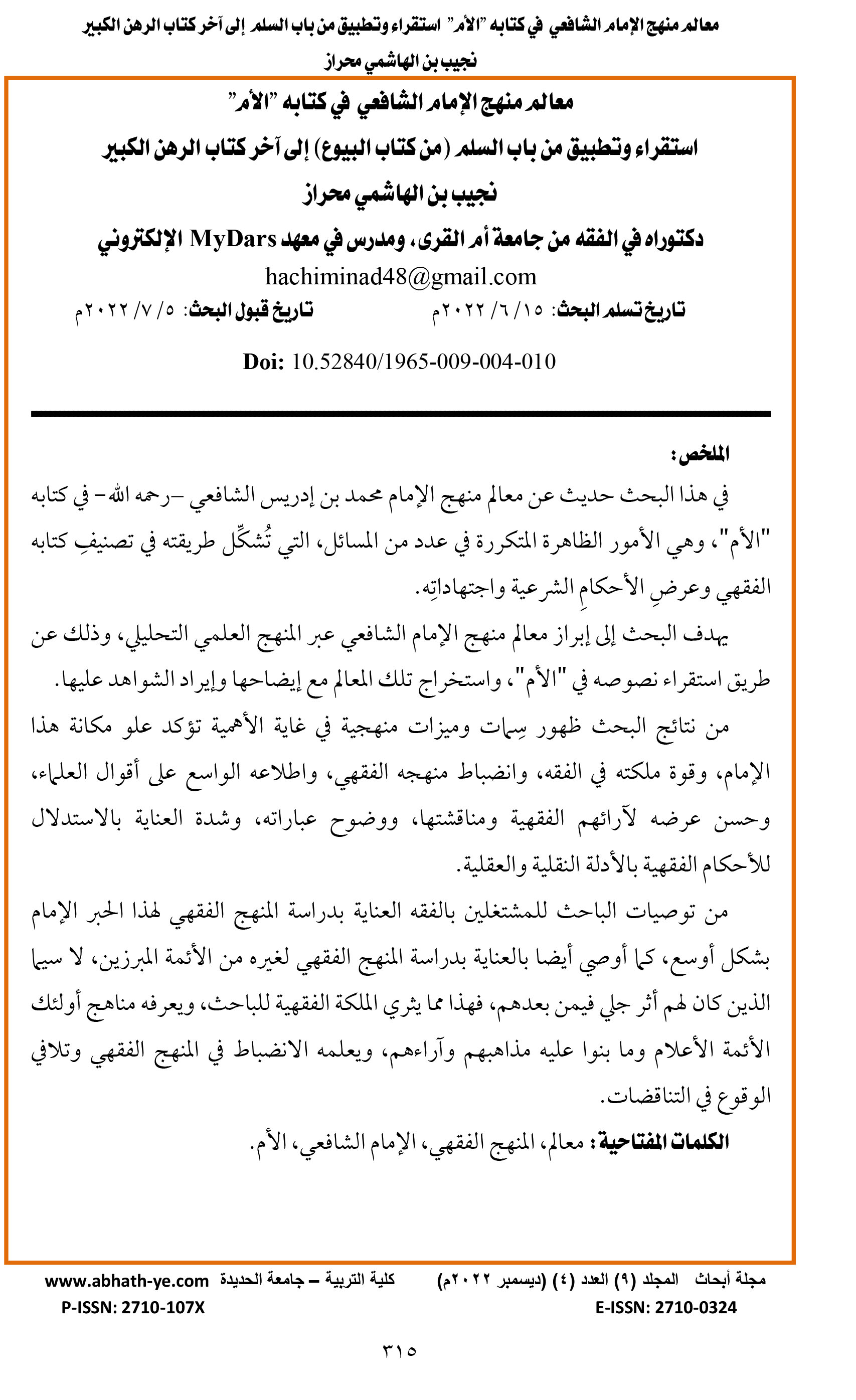Features of Imam Al-Shāfi'ī’s Methodology through his Work: "Al-Umm" A Study and Application from the Section of "Al-Salam" (from the Chapter of "Al-Buyou'i" to the end of the Chapter of "Al-Rahn Al-Kabir"
Keywords:
Features, Jurisprudence methodology, Al-Shāfi'ī, Al-ummAbstract
In this paper, the salient features of the methodology followed by Imam Muhammad Ibn Idris Al-Shāfi'ī in his book “Al-Umm”, i.e. the visible and repetitive features that define his method of authorship of his legislative book and the way he demonstrated legislative rulings and his "Ijtihad".
The paper aims to highlight the hallmarks of Al-Shāfi'ī’s methodology through the analytical approach, i.e. by studying texts from his book, and then inferring the salient features of the methodology with which they were composed, along with clarifying them and displaying their substantiations.
The conclusions reached by the researcher include: the manifestation of very important methodological features that confirm the high status of the author, his deep insight of jurisprudence, consistent systematic approach, wide knowledge of the sayings of scholars, clarity of his discourse, and his full-fledged commitment to provide textual and mental evidences for religious rulings.
The researcher recommends researchers in jurisprudence to pay attention to studying the jurisprudential methodology of this imam in a broader way, and also to study the jurisprudential methodology of other prominent imams, especially those who had clear impact on those after them, as this would enrich the jurisprudential faculty of the researcher and make him recognize the methods of those notable imams and how they built their doctrines and opinions, as well as teach him orderliness in the jurisprudential approach and to avoid falling into contradictions.

Downloads
Published
How to Cite
Issue
Section
License
Copyright (c) 2022 ِabhath Journal for the Humanities

This work is licensed under a Creative Commons Attribution 4.0 International License.
- البحوث المنشورة في المجلة مرخصة بموجب ترخيص (CC BY 4.0) Creative Commons Attribution 4.0 الدولي.
- تسمح المجلة بإعادة نسخ وتوزيع ونقل العمل لأي وسط أو شكل لأي غرض.
- تسمح بالتعديل والتحويل، والإضافة على العمل مع نسبة ذلك إلى المؤلف.
- حقوق النشر يحتفظ بها الباحثون.




